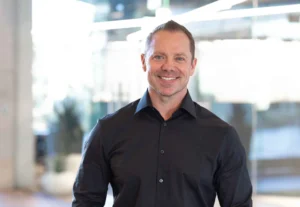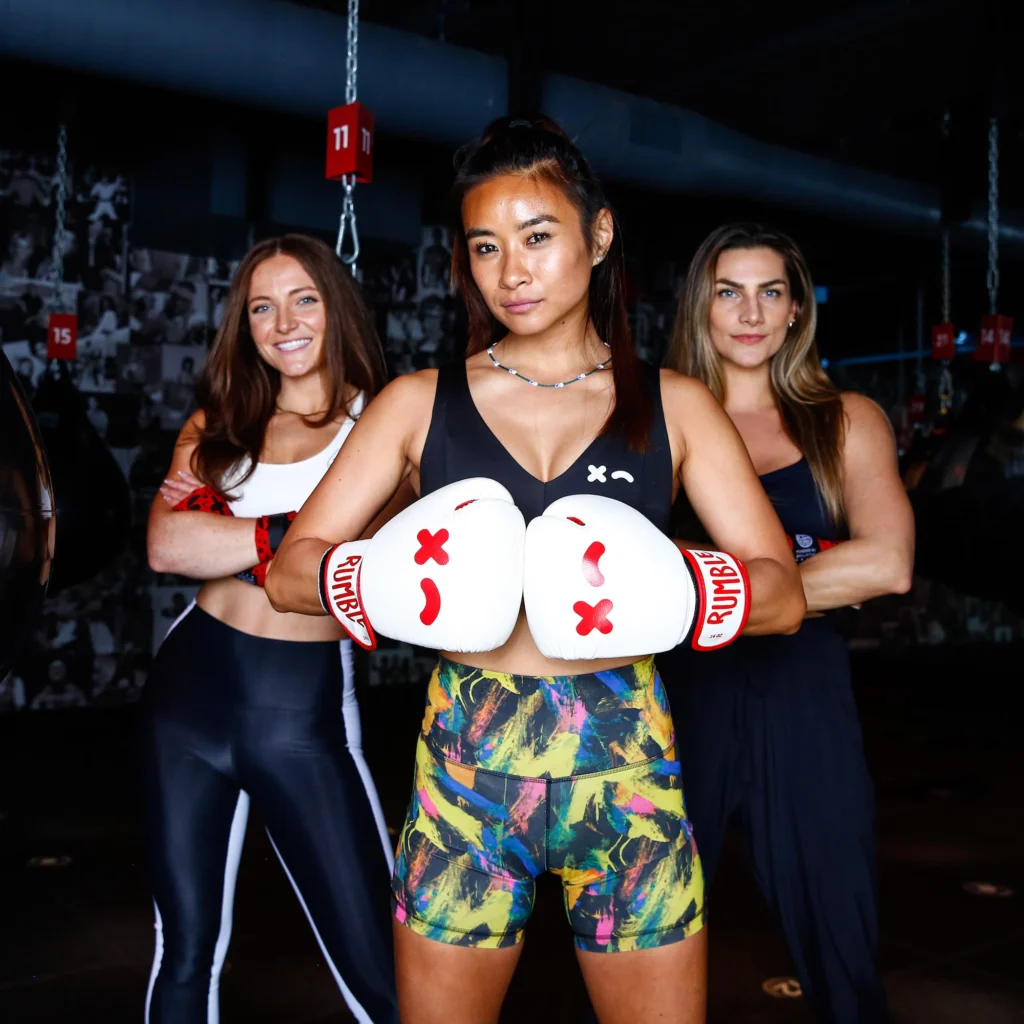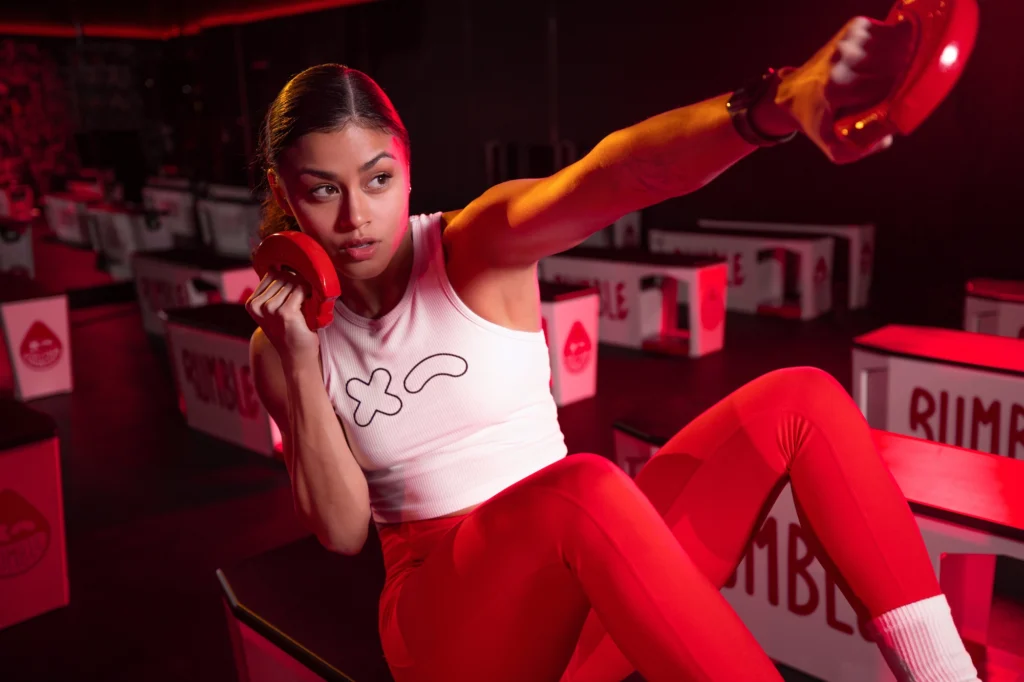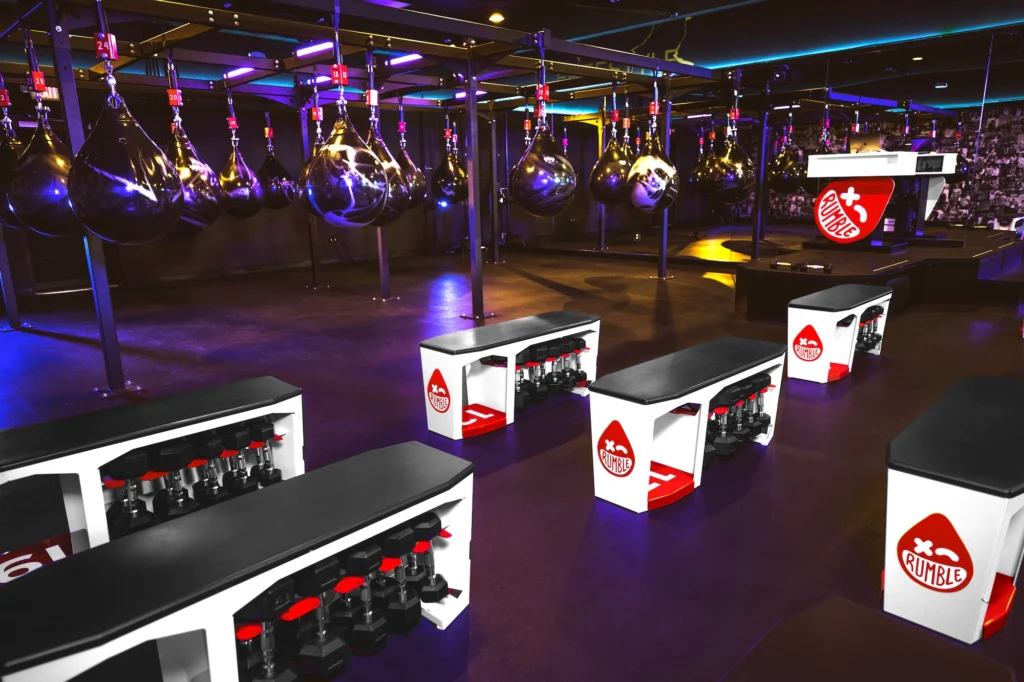
Under Grove’s watch, Rumble Boxing has enjoyed early franchise growth similar to that of Club Pilates, Xponential Fitness’ most successful brand
When Shaun Grove first started with Club Pilates back in 2015, Pilates itself was still a relatively niche exercise modality with limited brand awareness. Xponential Fitness, meanwhile, didn’t even exist.
Fast forward to 2023, and Club Pilates has become one of the most recognized brands in fitness while its parent company Xponential has a burgeoning portfolio of ten boutique brands, with over 2,850 studios across the globe.
Grove has been key to that success, serving as president of Club Pilates between 2015 and 2021, overseeing a period of massive growth for Xponential’s top brand. In March 2021, Grove became president of Rumble Boxing after Xponential acquired the brand, where he was tasked with positioning the boxing concept for early franchise growth.
That move has paid off, as Rumble Boxing had over 65 studios open and 375 franchise licenses signed as of Q2 2023, quite an impressive feat in just two years of franchising.
Grove spoke with Athletech News about his early days at Club Pilates, his close relationship with Xponential founder and CEO Anthony Geisler, and how he’s been able to grow Rumble Boxing into another fitness mega-franchise.
The following conversation has been lightly edited for clarity and length
Athletech News: Can you tell us about your background in fitness franchising and how you wound up at Xponential?
Shaun Grove: I was a franchise law attorney for many years, and then I met Anthony Geisler, and I became in-house counsel for LA Boxing, which he owned. I then became a franchisee of LA Boxing, opening a location in Long Beach, California, which became the best new store of the year, prompting me to buy several more territories. In that process, we were acquired by UFC Gym, and I became General Counsel at UFC Gym, which I did for another two years or so as I developed my other franchise locations. Eventually, I had four UFC gyms, so I stopped working at the corporate office to focus full-time on operating those as a multi-unit franchisee.
When Anthony left UFC Gym, he and I remained in contact, and he asked me to help him with the due diligence of a new company called Club Pilates. He and I both saw the same great opportunities, and I agreed to partner with him and come on board as president of Club Pilates in 2015. We ran Club Pilates for two years before selling it to a private equity group in 2017. At that time, we decided to create Xponential Fitness with the idea of creating the boutique fitness universe we have today. So I’ve been around since the very beginning of Club Pilates and Xponential. Anthony and I have been together for around 15 years at this point, really joined at the hip.
ATN: What convinced you to take the leap and join Anthony Geisler at Club Pilates back in 2015?
SG: Pilates at that time was a foreign concept to me. It had been around for a while, but nobody had really figured out the distribution model for it, so it was kind of tucked away in these mom-and-pop locations. I thought the space was ripe since it was a great concept that a lot of people seemed to like, but there just wasn’t much public awareness. Anthony and I knew franchising really well and we had some great vendor contacts from the past. Initially, he and I just thought it was going to be a fun project. But to our pleasant surprise, we’ve been running full-sprint since 2015.
ATN: You ran Club Pilates quite successfully from 2015 to 2021. Why did you leave to become Rumble Boxing president in 2021?
SG: It was really a natural transition given my background with LA Boxing and UFC Gym, combined with how well we did with Club Pilates as the first Xponential brand that we launched. We knew Rumble had a cult-like following in New York and a lot of excitement around the brand, so we envisioned that it would have the same growth trajectory we saw with Club Pilates, which it absolutely has. We also developed some really great people at Club Pilates along the way, so I felt it was time for Mike Gray to step in as president and make Club Pilates his own moving forward.

ATN: What are the main factors behind Rumble’s impressive franchise growth since Xponential acquired the brand in 2021?
SG: It’s the (Xponential) system we have in place, combined with the organic interest for Rumble that’s out there in the market. The founders did a really good job at positioning the original studios – we call those the signature locations – before we started franchising and turning it into the boutique model we have today. They placed their flagship Rumble studio in New York City and then moved to areas like LA, San Francisco, Philadelphia, Washington D.C. and Chicago. Since the brand was well known in major markets, people who travel to those areas already knew about it, so when we started franchising it, the organic interest was really high. I’d say the organic interest in Rumble was higher than any other brand we’ve had at Xponential. We’ve had a lot of loyal, organic followers who wanted to become franchise partners with us, as well as interest from more traditional business people who want a semi-absentee model.
In terms of Xponential, we have such a tried and tested system today, from franchise sales all the way through to development, which we started with Club Pilates and have brought to all of our other brands. Our franchise sales and marketing teams have done a great job, and the Rumble product speaks for itself.
ATN: How fast is Rumble opening new studios?
SG: It depends on the month, but we’re typically opening around five or more every month. In addition to our 65-plus studios currently open, we have around 45 in presale that will be opening very soon. We’re expecting to be at the 100 studio mark very soon, if not by the end of this year, definitely in Q1 of 2024.

ATN: Rumble also has a growing international presence. How does the brand approach opening studios outside of North America?
SG: A lot of our international development is multi-unit. We operate those as master franchise relationships, where our international partners basically become “us” in that country, as opposed to Xponential operating those units or supporting them with a more hands-on approach as we would with our domestic franchises. Internationally, it’s more about licensing and finding great partners. Lately, a lot of our international partners have been interested in opening up a handful of our brands, like Club Pilates, StretchLab, CycleBar and Rumble. We have that type of arrangement in places like Australia, Mexico, Kuwait and Japan.
Overall, we’ve been working hard at developing our international base, and we should have 30 or more studios open globally by Q1 or Q2 of 2024.
ATN: Strength training is booming right now. What’s consumer demand like for boxing-style workouts?
SG: Demand on the boxing side has always been strong, especially with the way we do it here at Rumble. It’s not so boxing-focused, I really call it “boxing-inspired.” It’s a great cardio workout that’s created around a boxing theme, if you will. We break the class up, so half of the class is spent on the boxing bags and then the other half takes place on the benches where we do strength and conditioning, and you switch every three rounds. So you’re getting a combination of that traditional high-intensity, great cardio boxing workout, and then you’re taking off your gloves and you’re doing strength and conditioning with dumbbells and functional bodyweight movements. For us, the strength training craze has only helped. It’s almost like you’re getting two for one.

ATN: What are the biggest opportunities and challenges facing boutique fitness brands today?
SG: There are so many options available to consumers today in the boutique fitness market, which is an opportunity and a challenge at the same time. It’s important to keep your concept relevant and exciting, because since there’s so much optionality, when the workout gets stale and members start to get bored, you’re going to lose them very quickly. It’s critically important to keep your finger on the pulse of what’s going on in the studio so that you can course-correct where needed and generate some intensity or excitement, or get back to what initially got a member to want to come in and try your concept.
